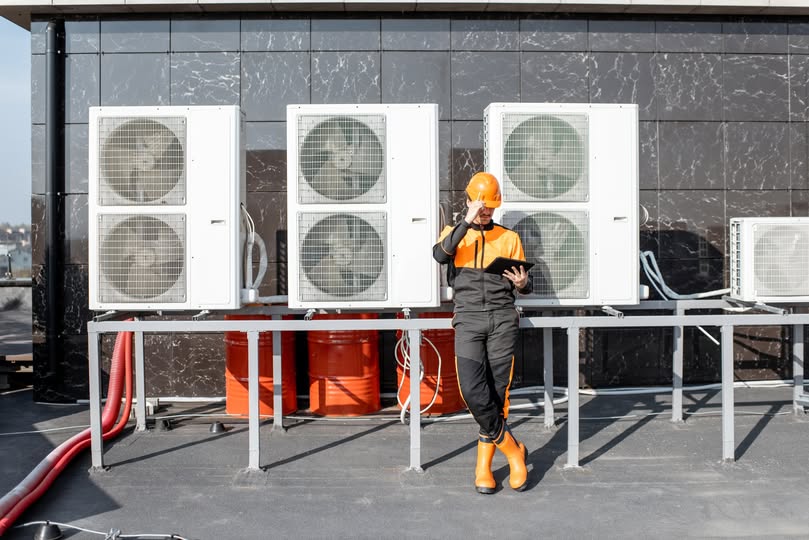Metallic Clicking Sound: Debris
There are several reasons an outside AC unit is making a loud noise. The outside AC unit has a large fan that rotates beneath a spiral grate that is part of the unit's housing. The blades on the fan are relatively large with thick metal blades. If the grate on the housing also has large spaces, debris such as twigs, acorns and small branches fall between the grate and fan causing the fan blades to beat against the debris. The sound this makes is a metallic clicking as debris hits fan blades. If this is the case, turn the unit off and carefully remove the debris without damaging the blades or grating. Should the debris be difficult to remove, you will need assistance from A-Plus Quality, HVAC services in the Greater Toronto Area. A certified technician will remove the grating from the housing and extricate the debris that is causing the loud noise.
Screechy and Metallic Sound: Fan Motor
If the loud noise from the outside AC unit sounds more screechy and metallic, the fan motor may need repair or replacement.
Squealing Noise: Fan Belt
If there is a loud squealing noise, the problem in this case may be the fan belt. When a fan belt makes a squealing sound, turn the unit off to prevent further damage and contact us. The belt will need to be removed and replaced by a certified technician from A-Plus Quality, HVAC services in the Greater Toronto Area.
Gurgling Sound: Refrigerant Leak or Condensate Drain Line
One other noise that occurs with an AC unit is a gurgling sound when the unit is operating. This may be due to a refrigerant leak or the noise is coming from the condensate drain line. With this problem, turn the unit off until an HVAC professional determines where the gurgling sound is coming from. If there is a refrigerant leak, this requires repair and replacement of refrigerant.
How to Avoid Costly Problems with an Outside AC Unit
One of the most timely and cost-effective ways to avoid problems with an outside AC unit is regular maintenance. In addition, when you do notice a problem it is best to have a certified technician from A-Plus Quality, HVAC services in the Greater Toronto Area, check out the issue and make any necessary repairs. If you are having troubles with your air conditioner, contact us today.



